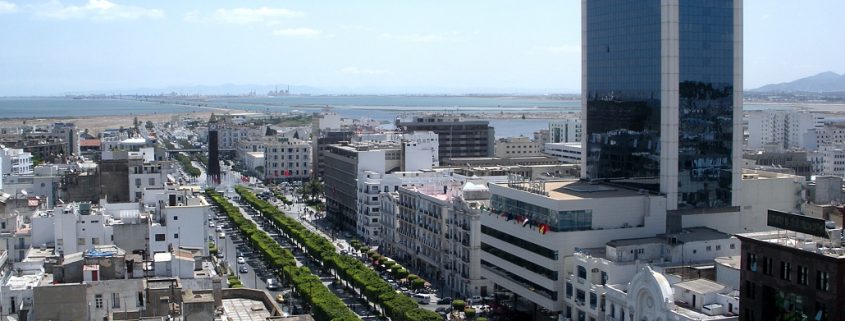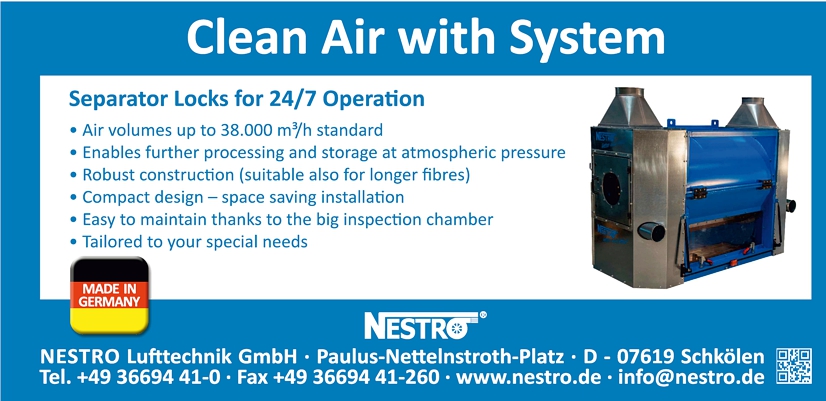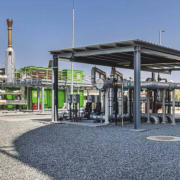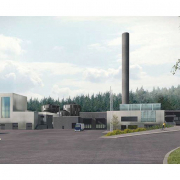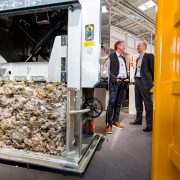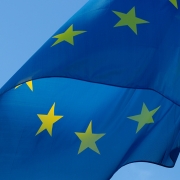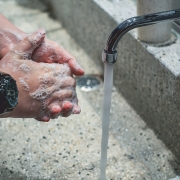Tunisia: Demand for Wastewater Treatment Technology Is Rising
Tunisia has limited water reserves, estimated at 4.880 billion cubic meters per year. Of these reserves, around 4.660 billion cubic meters can be mobilized. At this point 3.680 billion cubic meters are used (86 percent).
Approximately 56 percent of the water deposits consist of surface waters and are therefore dependent on the rainfall. Tunisia consists of three quarters of areas with arid climate. With around 4.66 billion cubic meters accessible water reserves Tunisia counts to the most arid countries in the world. The precipitation decreases from north to south (average 1,200 millimeters/year to 50 millimeters/year), so the water reserves vary greatly in the seven bioclimatic zones. Over 80 percent is generated by the agricultural sector, while around 14 percent is provided as drinking water. With unchanging infrastructure the UNESCO is expecting serious problems with water supply for Tunisia from 2025 onwards.
Increasing water consumption caused by a highly progressive industrialization of the country and the resulting water pollution are further factors for the long-term decreasing availability of water in good quality. In the textile industry in particular laundries, dyeing and weaving mills contribute significantly to the contamination of the already limited water resources. Due to the industrial progress an increased use of water is assumable.
Treated wastewater: for tourism and agricultural industry
The main operators in Tunisia’s water sector are SONEDE (Société Nationale d’Exploitation et de la Distribution des Eaux), DGGR (Direction Générale du Génie Rural) and ONAS (Office Nationale de L’Assainissement). SONEDE has got a 100 percent responsibility for the promotion of urban drinking water. SONEDE together with DGGR is 90 percent responsible for the promotion of rural drinking water. ONAS was established 1974 for the regulation of wastewater management and since 1993 additionally assigned with the protection of the water reserves. ONAS operates 80 percent of the sewage network (sewers, pump stations, cleaning plants etc.) and is supported locally by private companies.
In Tunisia, the total of collected wastewater – consisting by 90 percent of household wastewater – is around 247 million cubic meters per year with 242 million cubic meters per year treated wastewater; this is about 5 percent of the mobilized water resources. 2014 around 240 million cubic meters of water has been purified in 108 wastewater treatment plants (WWTP). The capacity of the plants was 818,000 cubic meters per day. In 2015 approximately 60 million cubic meters of the treated wastewater has been reused – the main quantity for tourism sector and agricultural industry: A total of 9,746 hectares of agricultural, golf and green areas are treated with treated sewage water. Furthermore, 15,000 hectares of ecosystems are irrigated with treated sewage water. Another part is fed due to infiltration in two groundwater reservoirs, approximately 3,000 cubic meters per day are used by the industrial sector.
A total of 113 sewage treatment plants
The amount of reused wastewater is about 24 percent of the total collected wastewater. Of this, 53.8 percent flowed indirectly into the water reserves and 46.2 percent were used directly for irrigation in agriculture, parks, and golf courses. The goal is to achieve a reuse rate of 50 percent by 2020. For this purpose not only the disposal processes have to be refined, but a total of 38 new WWTPs are to be connected to the grid (of which 9 are industry-oriented). Of a total of 113 sewage treatment plants for Tunisian industrial zones in 2015 – of which only a small number is equipped with an additional third cleaning stage –, only two are currently in use. In the normal case, the wastewater from the industrial sector is fed into the municipal sewage system and treated in municipal WWTPs. So wastewater treatment in Tunisia offers scope for development and innovation: In the near future, there will be nine new industrial sewage treatment plants, which are supposed to relieve the municipal network.
Integration of treated wastewater to be doubled
Due to the low water reserves the ONAS plans to double the integration of treated wastewater until 2020. Separate companies (e.g. from the textile sector) have already integrated internal wastewater treatment processes into their process sequences. The internal sewage treatment plants aim to reach an up to 60 percent reintegration of the sewage in the processes. The remaining wastewater is to be fed into the municipal sewage network according to the standard NT 106.02. The ONAS strategy for 2020 also intends to reach a 100 percent cost coverage through a more stringent transfer of costs to heavily polluting companies. This will increase the industry‘s need for internal wastewater purification processes. Wastewater in the industrial sector is subject to Tunisian standard NT 106.02. This standard specifies the permissible pollutant content in the water in order to allow it to flow back into rivers or sea or into the sewage system operated by ONAS. For irrigation in agriculture there is standard NT 106.03.
The objectives ONAS plans for the water sector for 2020 are an expansion of the network by linking previously untapped areas (32 municipalities), the expansion of capacity through the construction of new plants (sewage treatment, pump stations, etc.), an amelioration of the infrastructure (canalization and WWTP) and likewise the amelioration of the cleaning efficiency to increase water recycling. For this purpose the ONAS funds its investment budget from both the Tunisian state (40 percent) and international donors (60 percent).
France companies more active than German companies
According to the German-Tunisian Chamber of Industry and Commerce, numerous German companies are specialized in techniques and product solutions in the water supply and wastewater management and are regarded as a world leader. With its high-quality solutions, the German portfolio compete globally. German wastewater companies can assist companies in Tunisia in the implementation of projects, as many are specialized in specific product solutions of different sized sewage treatment plants, wastewater treatment plants and modules, treatment of sewage effluents, water storage elements, pipe systems, pump technology as well as monitoring systems. This is an enormous sales potential in Tunisia, especially in the coming years. Compared to the activity of French companies, however, a small amount of German activity has so far been observed. As an active industry there are currently consultants who are involved in creating different concepts for Tunisian companies.
Investment needed
ONAS is, amongst others, supported by the Credit Institution for Reconstruction (KfW), which accompanies ONAS since its founding in 1974. KfW‘s objectives include the innovative development of the sewage sector and a consequent increase in water efficiency. At present, the cost of KfW‘s projects in the sewage sector amounts to around 400 million Euro, of which around 300 million Euro is planned for projects in the field of urban water management. Further projects are being prepared and will support the irrigation agriculture and urban water management. The demand for the development of wastewater technology towards a more resource efficient process in Tunisia consists. Studies carried out by DGEQV, the general directory for environment and quality of life in Tunisia (Direction Générale de l’Environnement et de la Qualité de la Vie), have shown that the increased use of treated sewage water still requires additional research and adaption to the latest state of the art. Furthermore, the availability of this alternative resource must be ensured in the desired quality. Amongst others a feasibility study on groundwater enrichment by treated sewage water was carried out, as well as a survey on the profitability of a different use of irrigation perimeters.
Many opportunities offered
In the following years many large-scale projects are planned, including the modernization of various sewage treatment plants and the construction of a total of 38 new sewage treatment plants with overall costs of approximately 1 billion Euro. The Tunisian water and wastewater market is growing, as the trend to use treated wastewater as an alternative water resource increases. Furthermore, the demand for more effective and modern methods of processing rises. The sewage sector in Tunisia offers many opportunities for German and other small and medium-sized companies to become subcontractors, product suppliers or consultants. Many large projects require the expertise of experienced foreign companies, as well as a competent local partner in Tunisia is recommended for these projects. In the following years Tunisia will offer an enormous sales potential for companies in the field of wastewater treatment and the chance to introduce innovative and promising technologies.
For more information please contact Dr. Makram Ben Hamida, m.benhamida@ahktunis.org.
Photo: pixabay
GR 22017

